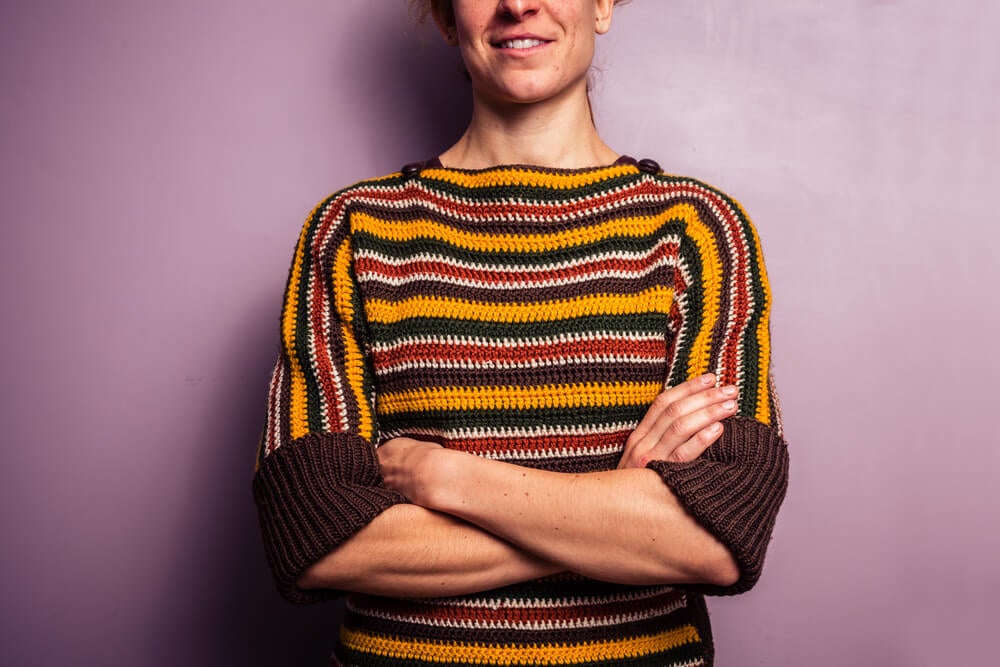“Don’t cross your arms because you’re closing or blocking others. “Does this expression sound familiar to you? If yes, I invite you to continue reading this article to discover that this is just one of the many meanings of the act of taking your arms.
Hug yourself, we’ve crossed our arms much more often in public than alone, you know why?The simplest meaning of this gesture in situations where you expose yourself to more people is to embrace you, because it gives you comfort at all times.
- With this your intention is not to hunt anyone.
- Because you are only looking for a little comfort.
- I encourage you to take the test when you see someone in this position: ask them if they feel comfortable.
How do I identify this type of gesture? Self-hugging is one of the automatic outlets we usually have in our body posture to feel comfortable.
2. Reduce stress. When we feel stressed, crossing our arms is a great way for your hands to strike comfortingly and peacefully in a very subtle way.
Feeling these pats calms us down and reassures us. It’s similar to how we feel when we rub our hands, in this case it’s not about blockages or comfort, it’s about anxiety.
How can you identify him? We see it quickly: it is a movement of a few seconds that carries a great emotional burden, the body receives the message of tranquility from the other person who does it.
3. Heating up. Can we often think that the person who has his arms crossed in front of us does not agree with what we think, or what we say, etc. ?But sometimes the simplest explanation is the right one: it’s just cold.
How can you identify him? When you cross your arms in the cold, you tend to stretch your shoulders and upper back, the person not only crosses your arms, but also shrugs and keeps them tense to generate and maintain heat.
4. Hide insecurity. Women who do not feel safe and need to protect themselves cross their arms so as not to feel too exposed, in turn, people who feel uncomfortable or threatened by others will make this gesture as a sign of defense.
This type of hug manifests itself by the shoulders, which do not rise and progress, and the body bends a little.
5. Extreme fear. Crossing her arms can mean that the person is experiencing great fear, a great concern that instantly leads her to cross her arms over her chest to protect her internal organs, which means vital protection.
This type of hug is accompanied by manipulative gestures: touching the face and neck, pressing on the lips and having microexpressions of fear.
6. Self-control. We often cross our arms when we feel irritated or upset, as a form of coertion.
A clear example of this case is when we ask children to do something they do not want to do, with this gesture we also allow ourselves to communicate discomfort without having to say a word, in the case of adults they do so when they are frustrated and want to control themselves, not because they want to keep people away or impose a barrier.
7. Emission power. Do you know how to transmit power with nonverbal language?Wearing a pose where you pull out your elbows and cross your arms is a strong personality demonstration.
Crossing your arms makes your chest box bigger and more robust, you can identify it when you do it on your chest without in the solar plexus.
Isolation: it is the most common meaning and the one that we associate most with this gesture, however, crossing the arms to express this emotional need also serves to temporarily retreat to an introspective state, so a physical and psychological barrier is created between the person making the gesture and the others.
Nonverbal language remains an outstanding problem in today’s society. Many people ignore most of the meanings of our actions and are often misunderstood. As we’ve seen, a person who crosses his arms may want to look for isolation, but he may also just be cold.
Nor can we forget that every human being is unique and different, of course this gesture can mean something important to you, but for another person it can only be the search for comfort, so using it to isolate yourself does not mean that it will have an effect on 100% of cases.
Thus, I encourage you to know a little more about this great and little-known world of gestures, to improve the quality of your relationships with people.

